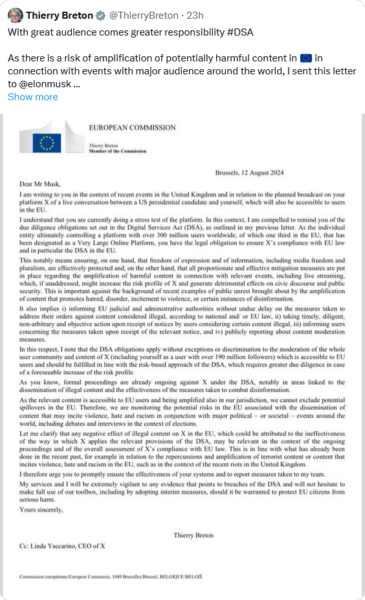I sent a link to Severian a few weeks ago, thinking it might be an interesting topic for his audience and he posted a response as part of Friday’s mailbag post. First, my explanation to him about why I thought the link was interesting:
I’ve often said that, from what I can tell — and bearing in mind my entire military experience consists of a .500 record at Risk! — AINO‘s entire force philosophy amounts to “zero casualties, ever”.
Note that this was true even in the 20th century, when America was still America. “Stupendous casualties” by American standards would hardly rate “a spot of bother” by Soviet. Wiki lists the bloodiest American battle as Eisenborn Ridge (part of the Bulge), with approximately five thousand fatalities.
A Soviet commander who didn’t come home with at least five thousand KIA could probably expect to be court-martialed for cowardice.
That same Wiki article separates “battles” from “campaigns” for some reason. There’s an entire “methodology” section I’m not going to wade into, but even looking at “campaigns”, the bloodiest (by their definitions) is Normandy — 29,204 KIA. That’s an entire campaign, which might rate “a hard week’s fighting” by Soviet, German, or Japanese standards.
Please understand, Americans’ unwillingness to take casualties was greatly to their credit. You want to know about “meat assaults”, ask the Germans, Russians, or Japanese (or the British or French in WWI). George Patton might not have been the best American commander, but he was the most American commander — the whole point of battle is to make the other stupid bastard die for his country. I am 100% in favor of minimal losses, for everyone, everywhere.
But “minimal” does not mean “none”. People die in wars. People die training for wars. People die in the vicinity of the training for war, because it’s inherently risky. It doesn’t make one some kind of monster to call these “acceptable” losses; it makes one a realist. One could just as easily say — and with the same justification — that a certain number of car crash fatalities, or iatrogenic deaths, etc. are acceptable losses, because there’s no way to have “interstate commerce” and “modern medicine”, respectively, without them.
The Fistagon seemingly denies this. Forget human losses for a moment, and consider mere equipment. You read up on, say, Air Force fighter planes, and you’re forced to conclude that their operations assume that all planes will be fully operational at all times. Again, saying nothing of the pilots, just the airframes. The Navy seems to assume that all ships everywhere will not only be serviceable, but actually in service, at all times. Just recently, they shot off all their ammo at Houthi and the Blowfish … and seemingly had no idea what to do, because as Milestone D walked us through it, it’s impossible to rearm while underway.
Think about that for a second. How the fuck is that supposed to work in a real war? Can we just put the war on pause for a few months, so all our ships can head back to port to reload?
In fact, I’d go so far as to speculate that that’s the origin of the phrase “meat assault”. What The Media are calling a “meat assault” is simply what was known to a sane age as “an assault”. No qualifiers. You know, your basic attack — go take that hill, and if you take the hill, and if enough of the attacking force survives to hold it, that’s a win. People who absolutely should know better, though, don’t see it that way.
Since we’re here … I remember having conversations with some folks in College Town re: the Battle of Fallujah, while it was happening (technically the Second Battle of Fallujah). Now, obviously quite a few of my interlocutors were ideologically committed to the position that this was senseless butchery. And in the fullness of time, I too have come around to the position that the entire Operation Endless Occupation was senseless butchery. But leaving all that aside, the point I was trying to make was a simple one: Total US casualties were 95 killed, 560 wounded.
Every one of them a senseless crime, I now believe, but considering Fallujah strictly as a military operation, that’s amazing. House-to-house fighting in a heavily urban area, against a fanatically committed opponent who was willing, indeed eager, to use every dirty trick in the book … and US forces took 655 total casualties. That’s about as well as it can possibly be done. The Red Army probably lost 655 men on the train ride getting to Stalingrad. I wouldn’t be surprised at all to learn that 655 is the daily casualty figure across the entire front in Ukraine … hell, I wouldn’t be surprised to learn that there are lots of individual sectors in Ukraine taking those kinds of daily losses. 655 is pretty damn good …
… but I was called every dirty name they could think of for suggesting it. I was called dirty names by people who called themselves conservatives, who were such ostentatious “patriots” that they’d embarrass Toby Keith.
Fallujah was fought in 2004, a time that seems like the Blessed Land of Sanity compared to now. AINO simply won’t take casualties. The Pentagram won’t — lose a tank, and you lose your job. (In battle, obviously. If you abandon it to the Taliban, no problem. And of course if you lose an entire war, it’s medals and promotions for everyone). And because the high command won’t, the field commanders won’t either. And because they won’t … well, “desertion” is an ugly word, but let’s just say Tim Walz won’t be the only guy who suddenly needs to be elsewhere right before it’s time to ship out. And as for the guys actually shanghaied into whatever foreign fuckup … well, “mutiny” is an even uglier word, but does anyone want to bet against it?
















